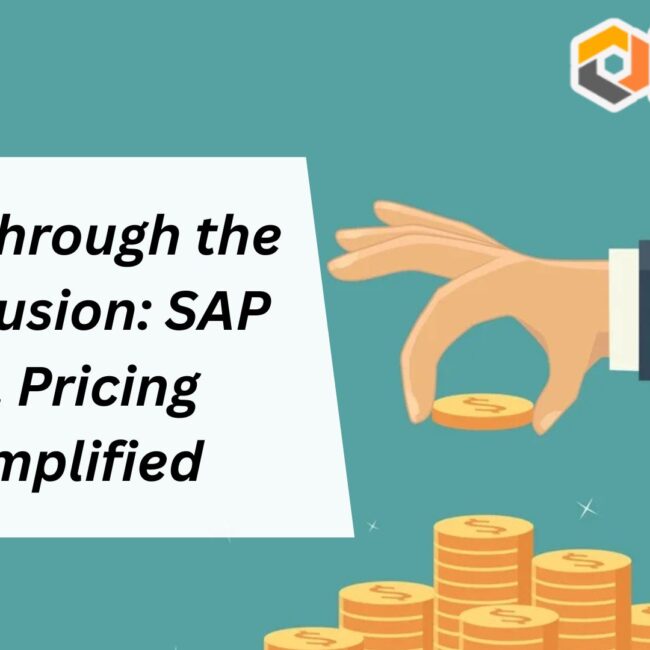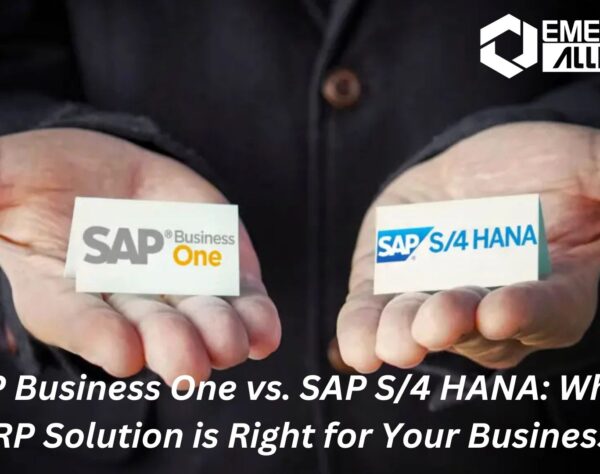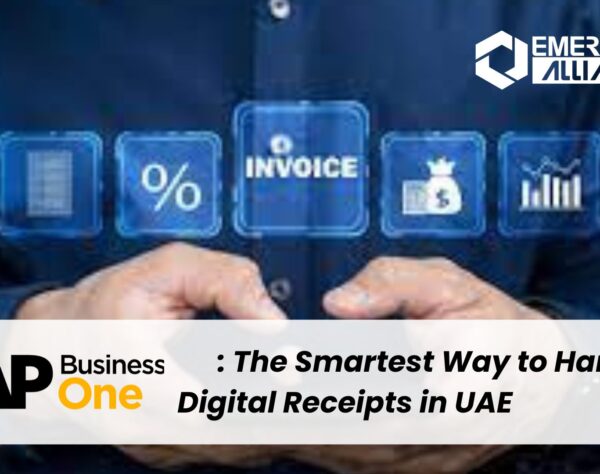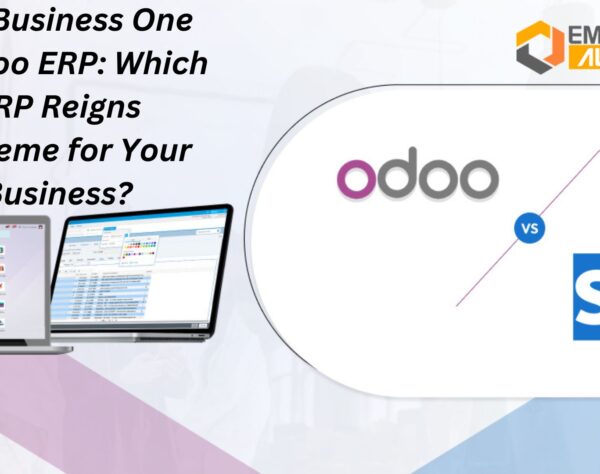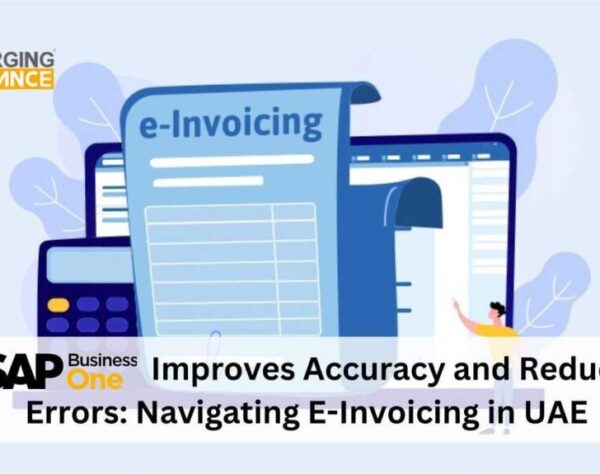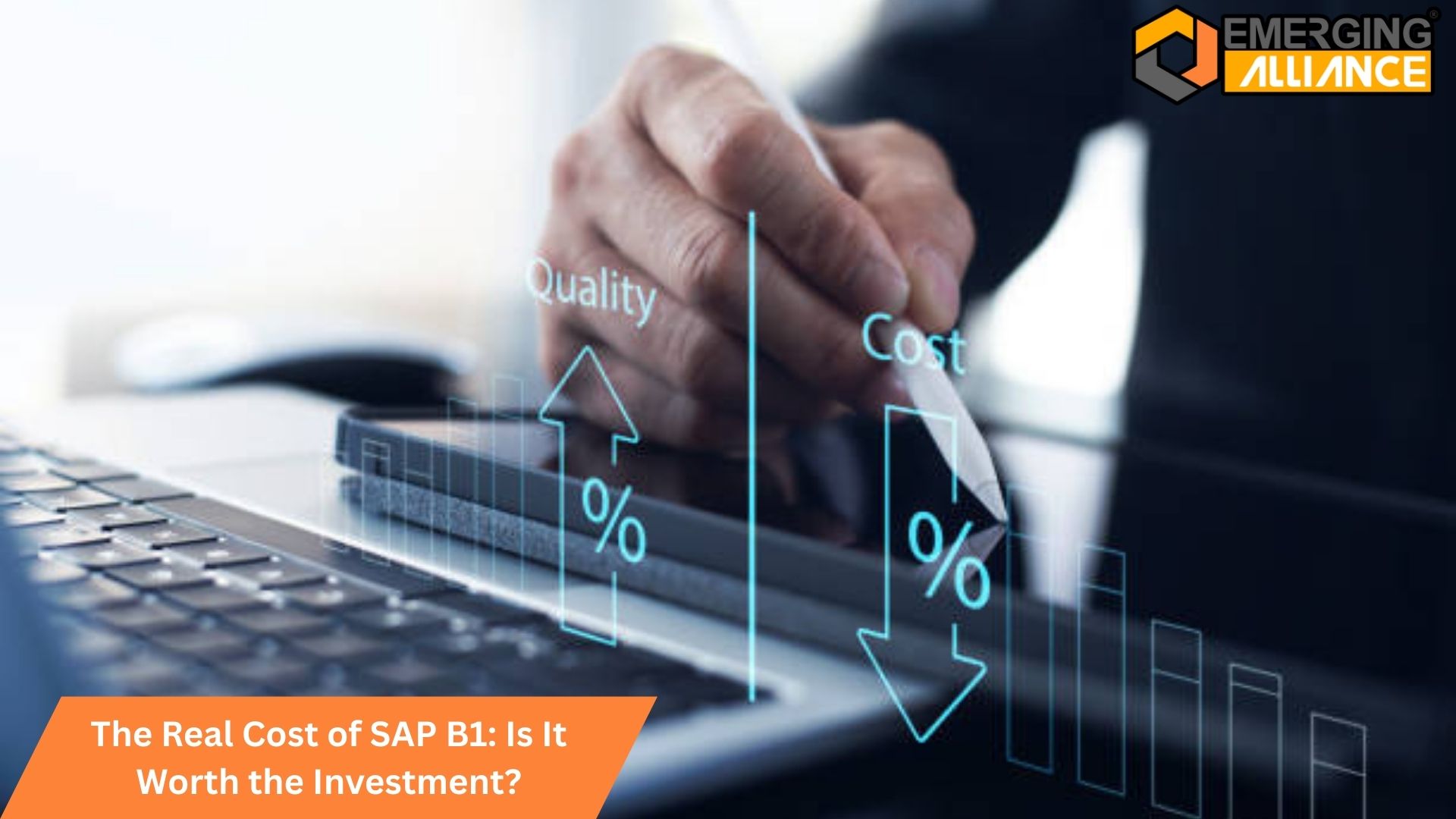
The Real Cost of SAP B1: Is It Worth the Investment?
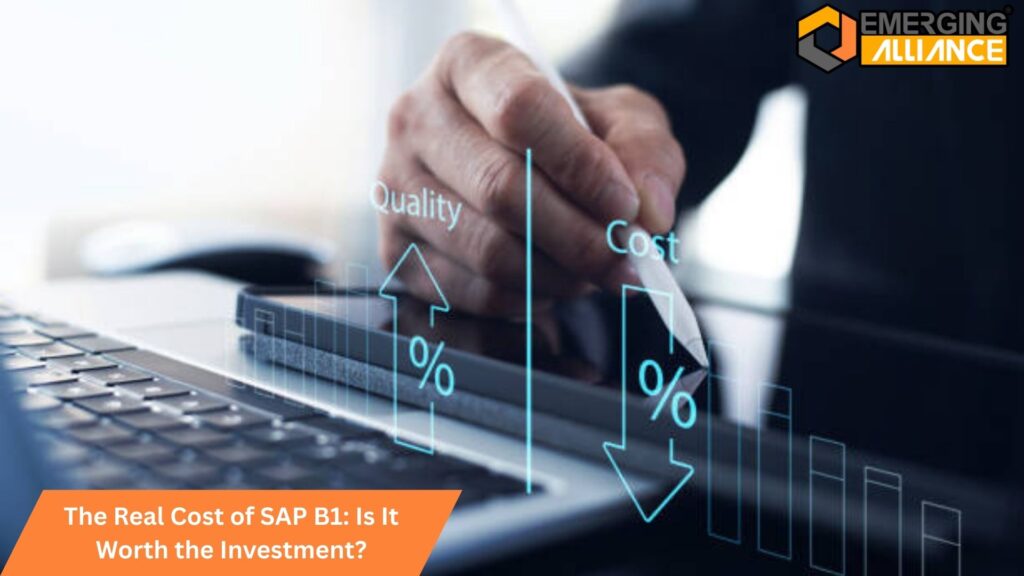
Unpacking SAP B1 Pricing: What You Really Pay For
For growing businesses navigating an increasingly digital world, finding the right ERP system can feel like searching for a needle in a haystack. SAP B1, or SAP Business One, stands out as a popular choice for small to mid-sized enterprises aiming to streamline operations, gain real-time visibility, and scale efficiently. But while features and benefits are often discussed, pricing can remain a mystery.
So what is the real cost of SAP B1? And more importantly, does the return justify the spend? In this blog, we unravel the full pricing puzzle, from licensing models to hidden costs, and help you understand if SAP Business One is the smart investment your business needs.
What Is SAP B1 and Why Is It in High Demand?
SAP Business One is an all-in-one ERP system tailored for SMEs. Unlike bulky enterprise solutions, SAP B1 delivers power-packed functionality without overwhelming complexity. It covers every core business function — finance, inventory, purchasing, production, sales, CRM, HR, and more — under a single digital roof.
What makes SAP B1 appealing is its flexibility. Whether you’re a manufacturing unit, a wholesale distributor, or a service-based business, the software can be tailored to your needs with industry-specific add-ons. It’s built to grow with you, offering scalability, customization, and efficiency that rivals larger ERP systems at a fraction of the cost.
SAP B1 Pricing Models: Flexible for Any Business
When assessing SAP B1 pricing, it’s important to understand its two main licensing models:
1. Perpetual License Model
This is a one-time payment per user license, suitable for businesses preferring capital expenditure. It includes:
- Full ownership of the license
- Separate costs for annual maintenance and upgrades
- Ideal for businesses with on-premise IT infrastructure
2. Subscription-Based (SaaS/Cloud) Model
This is a pay-as-you-go model that spreads the SAP B1 cost over time. It includes:
- Monthly or annual payments
- Cloud hosting and regular updates
- Lower upfront costs and easier budget management
Choosing between these two depends on your IT capabilities, cash flow, and long-term goals.
What Factors Affect the Cost of SAP Business One?
Pricing isn’t one-size-fits-all. Several factors influence the total cost of SAP B1, including:
a. User Licenses
SAP B1 uses a named user licensing model. There are different license types based on access levels:
- Professional License (full system access)
- Limited License (restricted to specific roles: Sales, Financials, Logistics)
b. Modules and Functionalities
The cost depends on the modules you activate. A company using finance and inventory will pay less than one implementing advanced manufacturing, MRP, and project management.
c. Implementation Services
This includes setup, configuration, data migration, training, and testing. Partner rates vary, but implementation can cost more than the software itself if the scope is large.
d. Customizations & Integrations
If you require custom workflows or integrations with third-party tools (e.g., eCommerce, payroll, or shipping apps), the cost increases. SAP B1 offers an SDK and APIs, but custom development adds to the investment.
e. Deployment Type
- On-Premise: Requires hardware, IT staff, and manual upgrades.
- Cloud-Based: Hosted on private/public cloud, with maintenance handled by the provider.
f. Support, Maintenance, and Training
Ongoing support plans, software maintenance (patches and upgrades), and training for users are essential for success. These are recurring costs that ensure your SAP Business One system remains efficient.
Comparing SAP B1 Cost to ROI
You’re not just paying for ERP software — you’re investing in transformation. Here’s how businesses benefit:
- 40% reduction in manual entry and errors
- 30% faster order processing
- Real-time reporting saves hours in decision-making
- Increased inventory turnover and lower holding costs
Who Should Choose SAP B1?
SAP B1 is perfect for:
- SMEs looking for a scalable ERP
- Businesses with growing transaction volume
- Companies operating in multi-country setups
- Organizations with plans for digital transformation
Industries that benefit most include:
- Manufacturing
- Distribution & Retail
- Pharmaceuticals
- Food & Beverage
- Professional Services
How to Maximize SAP Business One Value
- Partner with experienced SAP B1 implementers
- Begin with essential modules and scale as needed
- Train employees for full system adoption
- Regularly update and optimize workflows
SAP Business One is not a plug-and-play tool. Strategic planning, change management, and ongoing optimization ensure you get the most from your investment.
Final Thoughts: Is SAP B1 Worth It?
Absolutely — if chosen and implemented wisely.
SAP B1 bridges the gap between affordability and enterprise-grade power. It delivers a complete suite of business tools in one integrated solution, enabling better decisions, faster growth, and smarter operations. While the SAP Business One cost might seem significant upfront, the long-term value often surpasses expectations.
If your business is ready to evolve, streamline, and scale — SAP B1 could be your smartest investment yet.
FAQs
1. How does SAP Business One pricing vary by country or region?
SAP B1 pricing varies depending on local currency, tax structures, and regional SAP partners’ service charges.
2. Can I implement SAP B1 in phases to control cost?
Yes, SAP B1 allows phased implementation — start with key modules, then scale as needed.
3. What is the typical timeline for SAP B1 implementation?
Implementation takes 4 to 16 weeks, depending on business size and customization.
4. Are there financing options for SAP B1?
Some SAP partners offer financing plans or subscription options to ease upfront investment.
5. Is SAP B1 cost-effective for startups?
Yes, especially with cloud-based licensing and partner offers for small businesses.
6. Does SAP B1 require a dedicated IT team?
Not necessarily. Cloud deployments reduce IT demands; many partners also offer managed services.
7. How often does SAP B1 receive updates or upgrades?
SAP provides regular feature updates, security patches, and upgrades (usually annually).
8. Is SAP B1 suitable for non-manufacturing industries?
Absolutely. SAP B1 is flexible and used across services, distribution, and even education sectors.
9. Can SAP B1 integrate with eCommerce or POS systems?
Yes. SAP B1 supports APIs and integrations with platforms like Shopify, Magento, and more.
10. Where can I get a personalized SAP B1 cost estimate?
Reach out to a certified SAP partner. They assess your needs and provide a tailored quote based on your goals.


